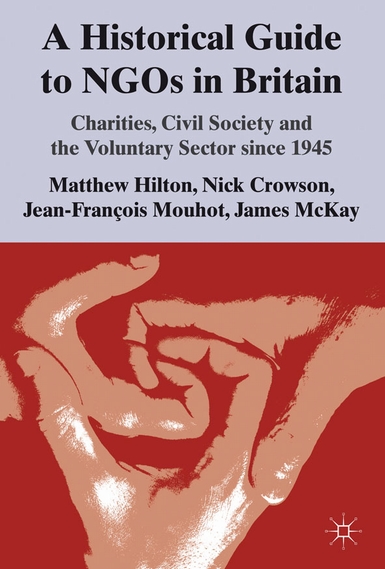NGO UK, Non-Governmental Organisations 1945-97
The project demonstrated that NGOs have contributed enormously to a
professionalisation and a privatisation of politics in modern Britain, emerging
as a new form of expert knowledge and political participation.
More specifically, the project found that:
- Civil society is not in decline in Britain. While membership of trade unions, political parties, churches and traditional women's groups has fallen, membership of new social movements, NGOs and pressure groups have flourished.
- The nature of democratic participation has changed. While citizens are less likely to vote at the ballot box, they are more likely to lend their support to causes supported by donations and direct debit.
- In contrast to theorists of social capital, this ought not to be interpreted as a decline in democracy. Rather, there are rational reasons for supporting organisations that require little active involvement beyond financial support.
- Social and political trust is not a consequence of citizen participation. Rather, it is the cause. In an increasingly complex world, the public has opted to support increasingly professional and expert-driven civic groups through arms-length, 'cheque-book' activism. This has been a calculated decision to trust certain types of organisation to act on its behalf when dealing with other experts.
- The expansion of the welfare state has not weakened civic participation. In many instances the state has promoted and strengthened the voluntary sector, the welfare state has acted as a spur to further voluntary initiatives and, rather than being in competition, the state and the voluntary sector have complemented one another.
- Such findings seriously call into question the key assumptions of the 'Big Society' as propounded by the Coalition government since May 2010.
Key outputs included:
- Matthew Hilton, James McKay, Nicholas Crowson & Jean-Francois Mouhot, The Politics of Expertise: How NGOs Shaped Modern Britain (Oxford University Press, 2013).
- Matthew Hilton, Nicholas Crowson, Jean-Francois Mouhot & James McKay, A Historical Guide to NGOs in Britain: Charities, Civil Society and the Voluntary Sector since 1945 (Basingstoke: Palgrave, 2012).
- NGO Datasets: www.ngo.bham.ac.uk/appendix/NGOs_handbook.htm
- Matthew Hilton, James McKay, Nicholas Crowson and Jean-Francois Mouhot, Civic Participation and Social Responsibility (2010), Policy briefing paper.
The final project report can be accessed here.

| Back to Home | Back to Page Top |
<%=getDateLastEdited()%>


